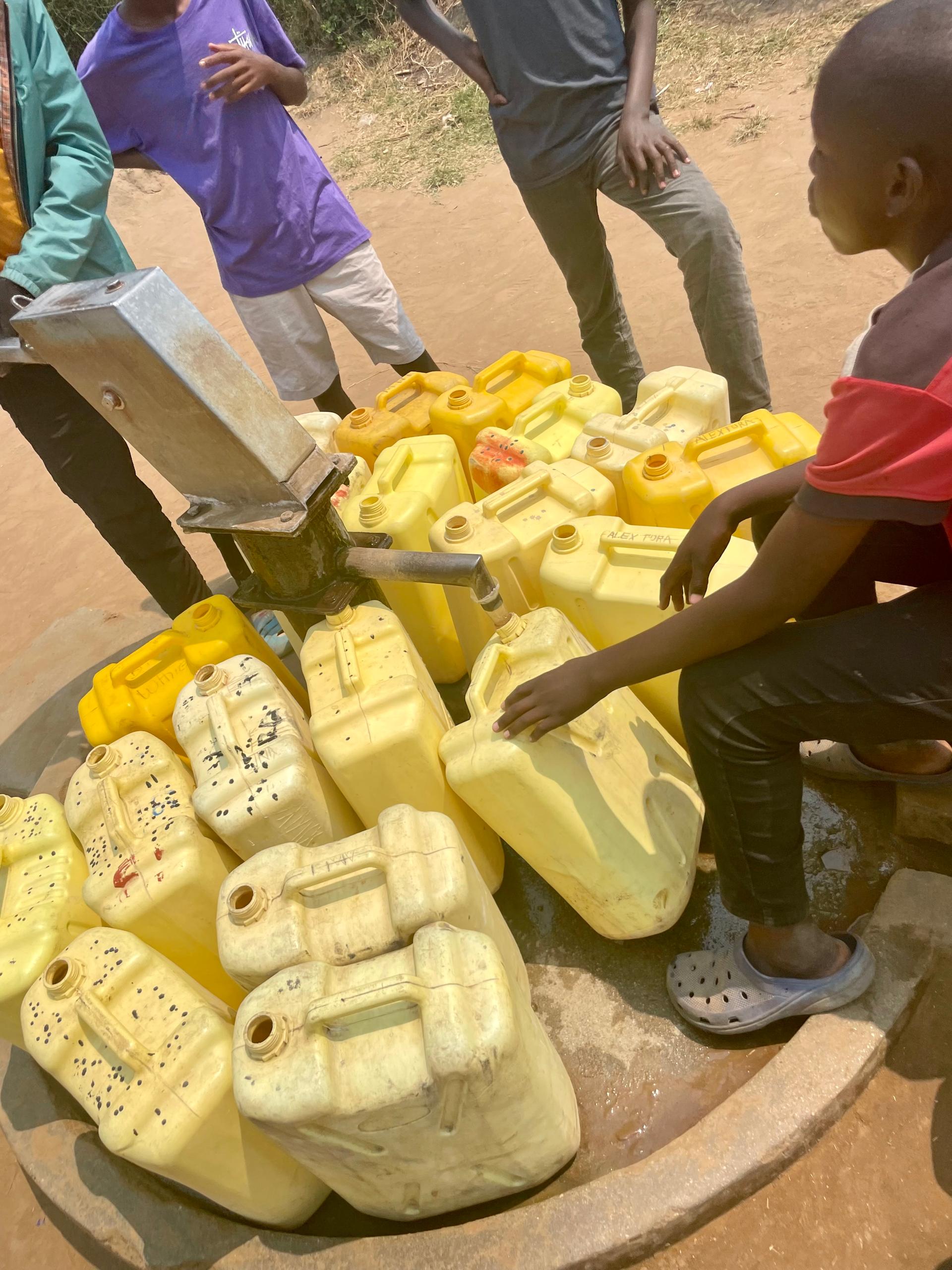Nakivale (Uganda) : refugees relieved by a new drinking water distributor

An NGO wants to reassure refugees in the Nakivale camp as they have resigned themselves to an interminable shortage of drinking water. The only problem is that refugees will have to pay their consumption bill. INFO SOS Médias Burundi
This NGO, which is finalizing its installations in a pilot area of »Base Camp », promises to connect the entire camp if the means allow it. It is taking over the part that was managed by the UNHCR and its partner in the sanitation sector (WASH : Water, Sanitation and Hygiene).
Tanks, cisterns and taps have been installed and refugees have already started to enjoy drinking water again, a commodity that had been unobtainable in this camp for several months, even more than a year.
But the problem is that the bill is the refugees’ responsibility.
« We have to pay between 50 and 100 Uganda shillings for a 20-litre can. It is relatively cheaper compared to 1000 or 1500 Uganda shillings that we used to pay for the same quantity from Ugandans outside the camp or from street vendors of water that was not even safe and drinkable », Burundian refugees are nevertheless happy.
The NGO that is continuing its installations justifies the cost by the means put into the expertise, the installation of tanks, taps and pumping machines to extract borehole water.
Refugees welcome this initiative but ask the UNHCR to participate in the budget for the construction of this infrastructure to reduce this bill.
« So, we could draw water for free because it is unacceptable that vulnerable people like us pay money in the middle of a camp. Or, that the UNHCR increases the assistance intended for us, » they suggest.
For its part, the UN agency indicates that it has concluded a contract to pay 80% of the cost with the Ugandan government and that the refugees will have to take care of the rest.
« The refugees will have to pay the water bill like other Ugandan citizens. However, we have taken into consideration their limited resources. They will pay less compared to others, » clarifies the UNHCR.
But occupants of Nakivale say they do not understand how they will be able to pay the bill.
« This is unheard of. Asking a refugee, vulnerable, who expects everything from humanitarians, to pay the water bill. It is adding drama to drama, » react refugees. They say that « we cannot even meet our needs because of the repeated cuts in rations. More than 70% of refugees have seen their assistance reduced. Where will we find this money to pay the bill? », they wonder.
According to our sources, the UNHCR does not seem to be giving in. It indicates that the same management is already operational in another camp, Rwamwanja, in the Kamwenge district in southern Uganda.
« And this has borne good results since 2019. Refugees and local communities in and around the settlement who benefit from it pay the bill themselves. We believe that it will be possible to do this in Nakivale as well, » reassures the UNHCR.
What is still reassuring, refugees add, is that anyone who wants a connection at home can benefit from it.
« These are private individuals who are only looking for financial profit. All you have to do is pay all the pipe connection fees and the monthly consumption bill. The installation cost can go up to three million Uganda shillings (USD 800),” stressed engineers from the NGO. And, there are refugees who have already afforded this luxury, they point out.
The Nakivale camp has more than 140,000 refugees including more than 33,000 Burundians.

